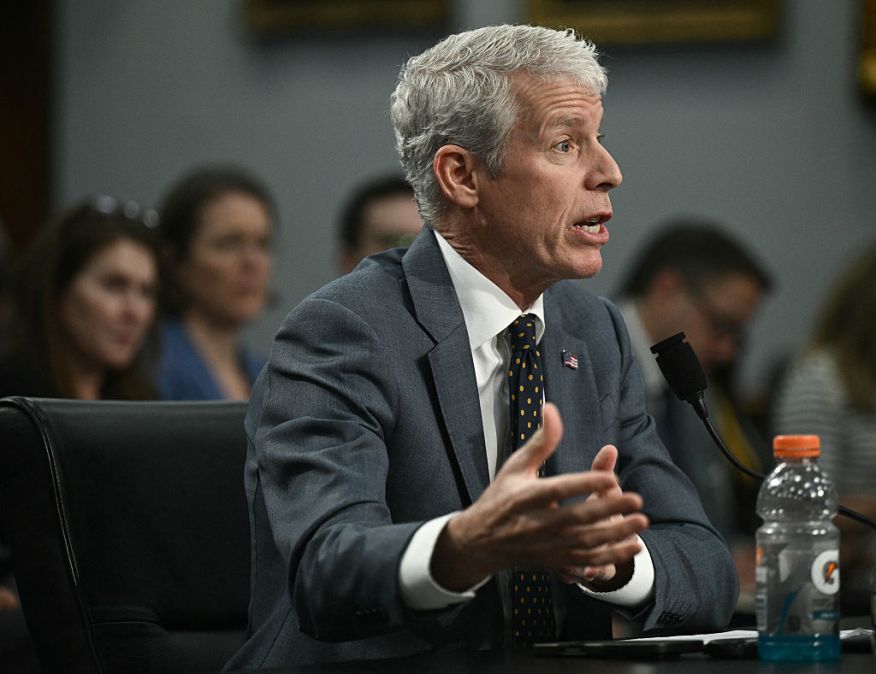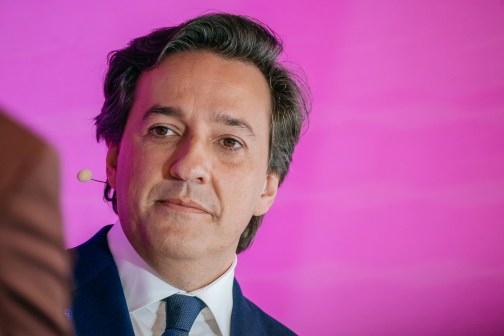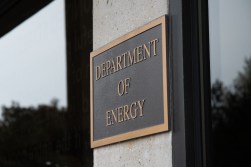Energy secretary: Government should ‘get out of the way’ to fuel AI race

Energy Secretary Chris Wright views artificial intelligence as “the Manhattan Project of our time” — and the only way to meet the massive energy demands the emerging tech requires is to have the government “get out of the way,” he told lawmakers Wednesday.
A former fracking executive, Wright said in testimony before the House Appropriations energy and water subcommittee that the DOE will prioritize research that leads to breakthroughs in nuclear fusion, high-performance computing, quantum computing and, of course, AI, which he thinks “will define the future of the world.”
“You know, in the original Manhattan Project, Nazi Germany was also trying to develop [an] atomic bomb,” Wright said. “So the cost of being second was just devastating. Like, that was a race not [that] you want to win. We had to win. And I think AI has similar overlay.”
Wright’s Oppenheimer-tinged comments — hyperbolic or not — hammered home his belief that the DOE should be doing whatever it takes to supercharge AI development by harnessing various energy sources. Climate scientists have warned that the AI industry is on track to be a massive producer of carbon emissions, though the word “climate” wasn’t mentioned once during Wednesday’s hearing.
A sweeping International Energy Agency report released last month, meanwhile, projected that the electricity demand from data centers globally will more than double by 2030, with power consumption by U.S. data facilities accounting for nearly half the growth in electricity demand over that period.
“Driven by AI use, the U.S. economy is set to consume more electricity in 2030 for processing data than for manufacturing all energy-intensive goods combined, including aluminium, steel, cement and chemicals,” the report noted. “A diverse range of energy sources will be tapped to meet data centres’ rising electricity needs … though renewables and natural gas are set to take the lead due to their cost-competitiveness and availability in key markets.”
The IEA noted that the increase in demand for data centers “is set to drive up emissions,” but the increase “will be small in the context of the overall energy sector and could potentially be offset by emissions reductions enabled by AI if adoption of the technology is widespread.”
When asked by Rep. Michael Guest, R-Miss., how the Energy Department plans to meet growing energy needs to power data centers and other sectors like advanced manufacturing, Wright said the country has the resources, the businesses and the technologies to make it all happen.
“The main thing I view the department and the government as a whole is to get out of the way and to enable private businesses and enterprises to bring the hundreds of billions of dollars of capital investment that will be needed to lead in AI,” Wright said.
Part of that approach, Wright said, requires a change in direction from the previous four years.
“I think in the last administration, where we saw very little growth in America’s energy production capacity, we were on a road where we were not going to lead in AI,” the secretary said.
Under President Joe Biden, the country actually set production records for oil, natural gas and renewable power, drawing plenty of complaints from Democrats and environmental advocates over the fossil-fuel boom. But Wright said Wednesday that removing barriers to grow nuclear capacity is part of his plan, calling that energy source “very well suited for AI.” He also wants to reverse course on coal, saying that shrinking its generating capacity “makes no sense.”
Driving AI innovation will occur in part at the DOE’s national laboratories, Wright said, pointing specifically to the fact that four of the world’s top 10 supercomputers are housed in those facilities. The agency has also identified 16 federal sites for “co-located data centers and energy infrastructure,” another piece of the AI puzzle.
“When it comes to our national labs, we are capable of doing more with less. We can both increase efficiency and drive innovation,” Wright said. “We need all energy sources to power the global AI race and meet growing energy demand while also ensuring the security of the grid. America doesn’t back down from big challenges or big builds.”






